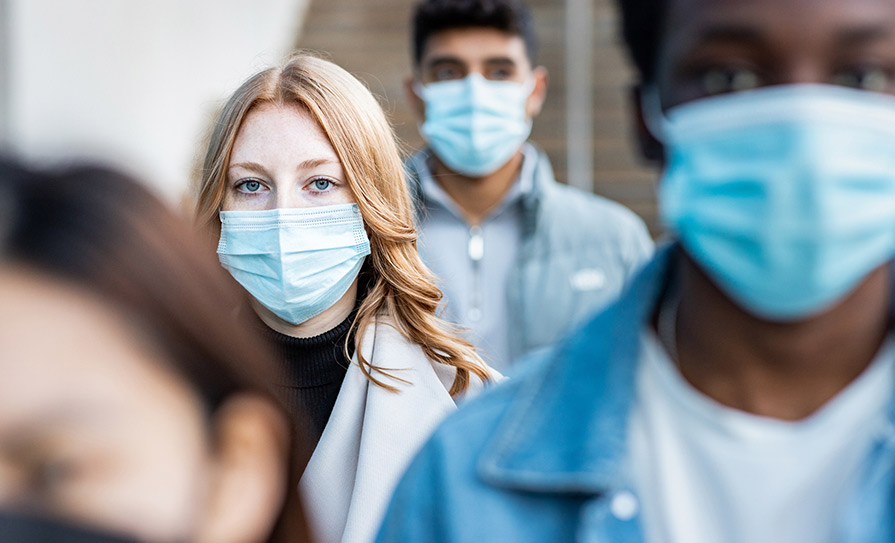
There are always going to be circulating viruses and respiratory illnesses in winter, but more can be done to limit their impact
During the Covid-19 pandemic, I naively thought that the messaging of isolating when you are sick to protect the most vulnerable around you and the idea that you shouldn’t be circulating viruses to all and sundry would stick around. I couldn’t have been more wrong. People want to forget those awful frightening times; they’ve long since moved on and have gone back to normal. They’re now busier than ever and have no time for coughs and colds interrupting their social lives or work schedules. They want to be better and they want to be better now and if that means demanding antibiotics and steroids right away then by all means they will do it.
I get it – having a cold is miserable! I’m sure it’s enormously frustrating to come into me and my general practice colleagues to be told that the only cure for their symptoms are rest and time. I don’t want to be misconstrued as blaming individual patients and certainly don’t want to denigrate my public health colleagues, but the messaging around self-limiting viral illnesses has definitely been lost somewhere along the way. People now look at you as if you have 10 heads if you ask them if they’ve done a Covid antigen test. Conversely, they will use the green light of ‘it’s not Covid’ to continue to go about their daily business, spreading their illnesses as they please.
Prior to the pandemic, the HSE heavily promoted its ‘Under the Weather’ resource, an excellent guide to the public on managing self-limiting illnesses. It does still exist; however, it now seems to have been merged into its general website and public awareness around it seems to be very low. I wonder if we now need TV ads and poster campaigns saying things as simple as ‘antibiotics will not cure a runny nose’, or ‘young children can get up to 10 viral illnesses every winter’. Our primary care settings do this every day on an individual level, but it would be so much more efficient to do this at large scale. We need to make sure people are empowered enough to know when self-care measures will suffice and when they need to seek medical intervention.
We also need to look at how we are promoting vaccines to our population. There is always going to be the cohort who diligently show up every October as soon as the flu vaccine comes out, but getting the message out to everyone else seems to be stalling. The uptake of the nasal flu vaccine in children continues to be appalling. We need to emphasise to parents why it matters, that this simple intervention could prevent vulnerable people around them, such as grandparents becoming very sick or even just prevent them having to take a week off work to care for a miserable febrile child. The introduction of administering it to senior infants in the school setting this year is positive, but it needs to go so much further.
Healthcare workers also need to look at ourselves. We are meant to be positive examples to our patients, but uptake of the flu vaccine in this group this winter is reported to be only around 50 per cent. Hospitals run local incentive programmes every year, but it is somewhat depressing that we can only be encouraged into doing something so important for ourselves and our patients with a free coffee or raffle entry.
We have to also consider how we address vaccine scepticism and fatigue more widely. No matter how thrilled they were to get their first Covid vaccines, many of my patients are now getting tired of being called for their fifth or sixth booster shot in two years and uptake rates are dropping. Our MMR vaccination rates are not at the levels where we have herd immunity and measles is known to be circulating in Europe – this is an Irish public health disaster waiting to happen.
Perhaps it is not too late to bring some of the lessons and imagery of Covid back; those yellow signs are still seared into my brain. There are always going to be circulating viruses in winter. But perhaps if some effort was put into this in autumn we would not find ourselves plunged into such significant winter trolley crises and demand on services every December and January.





Leave a Reply
You must be logged in to post a comment.